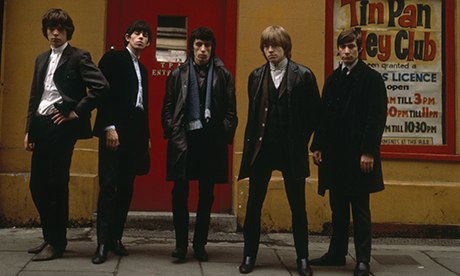
Cultural critics and judges of prizes are haunted by the memory of the hit-picker for the Decca record label who turned down the Beatles after an audition, choosing Brian Poole and the Tremeloes as the hotter prospect. But, in the special circle of hell where people who made the wrong call burn with eternal embarrassment, the guy who saw no future in a Merseyside guitar band now has some comforting company.
Newly released BBC records reveal that, in 1968, the corporation's talent selection group – a sort of internal precursor of The X Factor, which auditioned potential acts for broadcasting – turned down the artist now known as Sir Elton John as a "dull performer with a thin voice" and David Bowie as "amateurish and out of tune".
Idiotically wrong predictions, though, are common to all areas in which a scouting system sifts contenders. Andros Townsend, the Tottenham Hotspur winger whose performances in two recent World Cup qualifiers have made him English football's latest great hope, had spent years as a reserve or on loan in the lower leagues. And, in literature, it's almost obligatory for a super-selling volume to have been turned down by numerous publishers: JK Rowling's Harry Potter books, Margaret Mitchell's Gone With The Wind and Audrey Niffenegger's The Time Traveler's Wife were all considered a waste of paper by respected arbiters in the business.
These repeated examples offer the reliable pleasure of pompous expertise being contradicted, and encourage wannabes to keep trying. But the question of why it is so hard to guess whether someone or something will succeed takes on extra significance in an era when talent-scouting has become an entertainment in itself through shows such as The X Factor, The Voice, Britain's Got Talent and The Great British Bake-Off.
There are a number of reasons why judges and pundits are so prone to misjudgment, of which the biggest is the definition of the selection criteria. It's easy to sneer at the fact that former X Factor winners tend to have brief recording careers, but the point of the show is to find acts that make a quick buck for Mr Cowell, rather than to unearth musicians who may build slowly to a hit fifth album.
Similarly, the BBC chap on the talent selection group who rejected the Rolling Stones as "unsuitable for our purposes" may look foolish historically but, at the time, was probably correct in concluding that Jagger's band was not the sort of thing the corporation wished to see on its screens. Because most talent scouts and publishing readers are primed to seek more of what audiences already want, they are almost bound to reject anything ahead of, or in opposition to, contemporary taste.
A second issue is that auditions are subject to a number of variables: from the choice of material to the performance on the day. At the time they were panned by the BBC panel, Elton John and David Bowie were still closer to being Reginald Dwight and David Jones than what they later became: Bowie, for example, performed Chim-Chim-Cheree from Mary Poppins, which may not have made the best case for him. And, most crucially, there is human fallibility. Whatever Ofsted hopes, there must be examination candidates who have suffered because theirs was the last paper read at midnight by a marker eager for bed. And, in sport, a scout might drive 500 miles, then have the misfortune to see the player under scrutiny nursing a hamstring twinge on a slippery pitch.
We may also suspect that not all of those now-celebrated books rejected by publishers were properly read in all the houses that turned them down. And perhaps, at Decca in 1961, either the guy from the label or one of the boys had a bit of a head. To become a success generally requires luck, but to spot one, from a pack of jostling prospects, requires even more.

